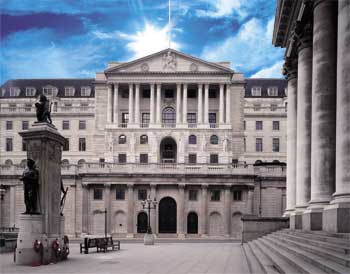 Money makes the world go round
What do we do with money when we’ve got it? And more importantly, where do we get it from.
Firstly, where do we get money from: adults have to earn money by working for it, having a job, or a career. Kids can earn money, too: by doing odd-jobs, helping out around the house, doing some gardening, washing the car, or a paper round, for instance.
 Secondly, what we do with our money, and how much of it we have, influences our lives. Think about this. You have 5 pence staring up at you from the kitchen table and you want to go out and use it. You realise pretty quickly that you don’t have very many choices: you can’t buy much with 5 pence. Not even a stamp. In short, you’re stuck. Secondly, what we do with our money, and how much of it we have, influences our lives. Think about this. You have 5 pence staring up at you from the kitchen table and you want to go out and use it. You realise pretty quickly that you don’t have very many choices: you can’t buy much with 5 pence. Not even a stamp. In short, you’re stuck.
But if you have £10 on the table, that’s a whole different story. You have to make decisions about what to do with it. You have to manage your money, and make some choices: you could go out and buy a book, comics, some sweets, or a CD. You could phone a friend or two, and go to the cinema (as long as your parents know, of course!). You certainly should think about saving some of it! Probably half, because you can still buy all sorts of pocket money things with the remaining £5.
 There is no doubt that having some money does give us a range of choices. For instance, we can go and spend it on luxury things we may not need, but really, really want: you could buy a super new outfit; dad could book a great holiday; mum could buy a new car. Or, we can pay for things we need to live: food; electricity and gas; houses; clothes. Or, we can do a bit of both of these and save some of our money. Alternatively, we can save all of the money. It’s up to us to decide. There is no doubt that having some money does give us a range of choices. For instance, we can go and spend it on luxury things we may not need, but really, really want: you could buy a super new outfit; dad could book a great holiday; mum could buy a new car. Or, we can pay for things we need to live: food; electricity and gas; houses; clothes. Or, we can do a bit of both of these and save some of our money. Alternatively, we can save all of the money. It’s up to us to decide.
 One thing is for sure, though. Some of that money will go into a bank, whether we put it there ourselves, or not. The shopkeeper will put the money we spend in his shop into a bank. All businesses use banks for the money they earn and spend. One thing is for sure, though. Some of that money will go into a bank, whether we put it there ourselves, or not. The shopkeeper will put the money we spend in his shop into a bank. All businesses use banks for the money they earn and spend.
The bank is an essential part of how businesses operate. When we are paid a salary, or wages for working, we put that money into a bank. And when we save, we save in a bank. Why?
Well, as we’ve seen in previous issues, we trust our banks to look after our money and to pay us interest – that’s what banks pay us for allowing them to look after our money. Look at OINK!’s money rates column (below) for examples of different rates of interest.
But, have you ever wondered how banks can afford to give us interest? Like all brilliant ideas, it’s simple. You deposit £100 with the bank. The bank pays interest at, say, 5% per year, so at the end of the year, the bank pays you back your £100 PLUS the £5 in interest you have earned.
However, during the year, the bank has loaned out your £100 to someone else. Because the bank is lending the money, and has to make sure it earns enough to pay for its expenses, pay its staff and pay you back your £100 and give you £5 in interest, it charges the borrower 10% interest, or £10. That’s how it runs its business. Make no mistake, a bank is a business. It’s just that its product is – money!
Borrowing money from the bank allows us to pay for things we want, or need, right away, without having to save for them. But we have to be careful because the money we borrow will also cost us interest. In the end, borrowing will cost more. If you can, saving up for what you want to buy will always cost you less!
But how do we know we can get our savings out of the bank when we want to? That’s partly the Bank of England’s job. The Bank makes sure that the whole banking system - all those different banks and their branches - is safe and working properly. Very importantly too, the Bank makes sure all these other banks have enough banknotes, that the banknotes are the real thing and, of course, that we can always rely on that “Promise to Pay”.
www.bankofengland.co.uk/banknotes
 back back
|






 Secondly, what we do with our money, and how much of it we have, influences our lives. Think about this. You have 5 pence staring up at you from the kitchen table and you want to go out and use it. You realise pretty quickly that you don’t have very many choices: you can’t buy much with 5 pence. Not even a stamp. In short, you’re stuck.
Secondly, what we do with our money, and how much of it we have, influences our lives. Think about this. You have 5 pence staring up at you from the kitchen table and you want to go out and use it. You realise pretty quickly that you don’t have very many choices: you can’t buy much with 5 pence. Not even a stamp. In short, you’re stuck. There is no doubt that having some money does give us a range of choices. For instance, we can go and spend it on luxury things we may not need, but really, really want: you could buy a super new outfit; dad could book a great holiday; mum could buy a new car. Or, we can pay for things we need to live: food; electricity and gas; houses; clothes. Or, we can do a bit of both of these and save some of our money. Alternatively, we can save all of the money. It’s up to us to decide.
There is no doubt that having some money does give us a range of choices. For instance, we can go and spend it on luxury things we may not need, but really, really want: you could buy a super new outfit; dad could book a great holiday; mum could buy a new car. Or, we can pay for things we need to live: food; electricity and gas; houses; clothes. Or, we can do a bit of both of these and save some of our money. Alternatively, we can save all of the money. It’s up to us to decide. One thing is for sure, though. Some of that money will go into a bank, whether we put it there ourselves, or not. The shopkeeper will put the money we spend in his shop into a bank. All businesses use banks for the money they earn and spend.
One thing is for sure, though. Some of that money will go into a bank, whether we put it there ourselves, or not. The shopkeeper will put the money we spend in his shop into a bank. All businesses use banks for the money they earn and spend.






